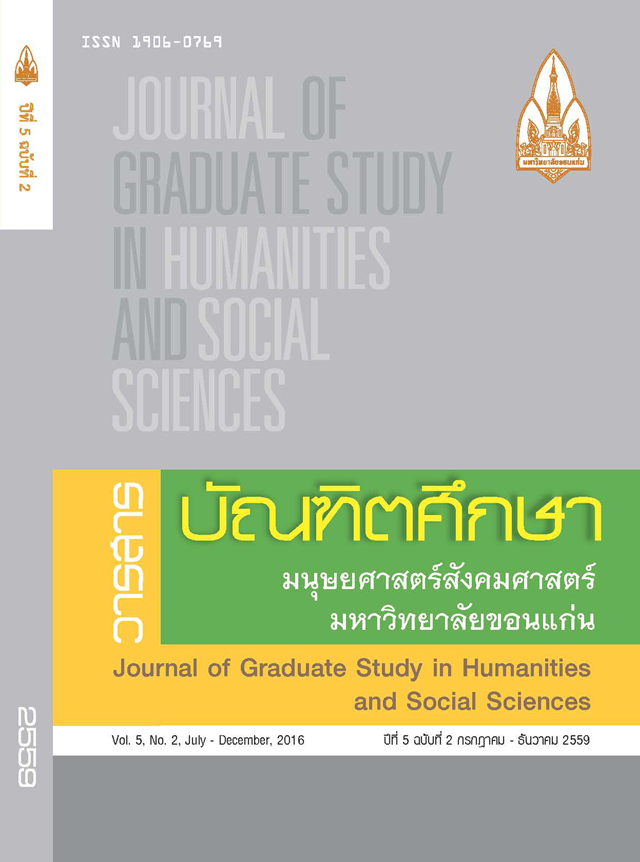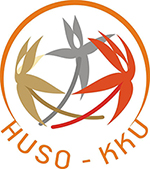ม้าในวรรณกรรมนิทานพื้นบ้านอีสาน: บทบาทและความหมายเชิงวัฒนธรรม ; Horses in I-san Literature: Roles and Cultural Meanings
Keywords:
ม้า, วรรณกรรมนิทานพื้นบ้านอีสาน, บทบาท, ความหมายเชิงวัฒนธรรม, Horses, I-san Folktales, Roles, Cultural meaningsAbstract
บทคัดย่อ
บทความวิจัยนี้ มีวัตถุประสงค์เพื่อศึกษาบทบาทและความหมายเชิงวัฒนธรรมของตัวละครม้าที่ปรากฏอยู่ในวรรณกรรมนิทานพื้นบ้านอีสานหรือภาคตะวันออกเฉียง เหนือของไทย ข้อมูลวรรณกรรมนิทานพื้นบ้านอีสานที่นำมาศึกษามีจำนวน 6 เรื่อง ได้แก่ กาฬะเกด ท้าวกำพร้าผีน้อย ผาแดงนางไอ่ พญาคันคาก พระลักพระลาม และสุริยฆาตจันทฆาต จากการศึกษาพบว่าม้าในวรรณกรรมนิทานพื้นบ้านอีสานมีบทบาทและความหมายทางวัฒนธรรมในเชิงสัญลักษณ์ที่สำคัญ 3 ประการ คือ ประการที่หนึ่ง เป็นตัวแทนของอำนาจ ประกอบด้วยอำนาจบารมีของกษัตริย์ อำนาจทางการเมือง และอำนาจเวทมนต์ไสยศาสตร์ ประการที่สอง เป็นตัวแทนของความมั่งคั่งร่ำรวย ความเจริญรุ่งเรืองก้าวหน้า และประการที่สาม เป็นตัวแทนของความเป็นพุทธะและหลักธรรมคำสอนทางพระพุทธศาสนา บทความนี้ได้วิเคราะห์ตีความให้เห็นบทบาทความสำคัญของตัวละครม้าที่มีความหมายเชิงสัญลักษณ์ ซึ่งสัมพันธ์กับมิติทางวัฒนธรรมทั้งทางโลกและทางธรรม โดยมีความเกี่ยวข้องกับระบบความคิดความเชื่อ โลกทัศน์ ค่านิยม และอุดมการณ์ทางสังคมของผู้คนในชุมชนแห่งนี้
Abstract
The study’s main objective is to study the roles and cultural meaning of the horse characters which appear in I-san or the northeastern literatures of Thailand. There are 6 of I-san literary works: Khalakad, Taokumpra-pinoi, Padaeng Nang-Ai, Phayakankark, Phaluk Phalam, and Suriyakard Jantakard. The study shows that horses in I-san literatures have characters and meanings of symbolic cultures which can be divided into 3 categories. Firstly, horses symbolize power consisting of the power of the King, the power of politics, and the power of black magic. Secondly, horses represent affluence and prosperity. Lastly, horses represent Buddhism and the teaching of Buddha. This article shows the characters of horses and their symbolical cultural meanings which are related to the dimensions of cultures both in secular and religious. These are relevant to people thoughts, beliefs, visions, values, and social ideology in this community.







